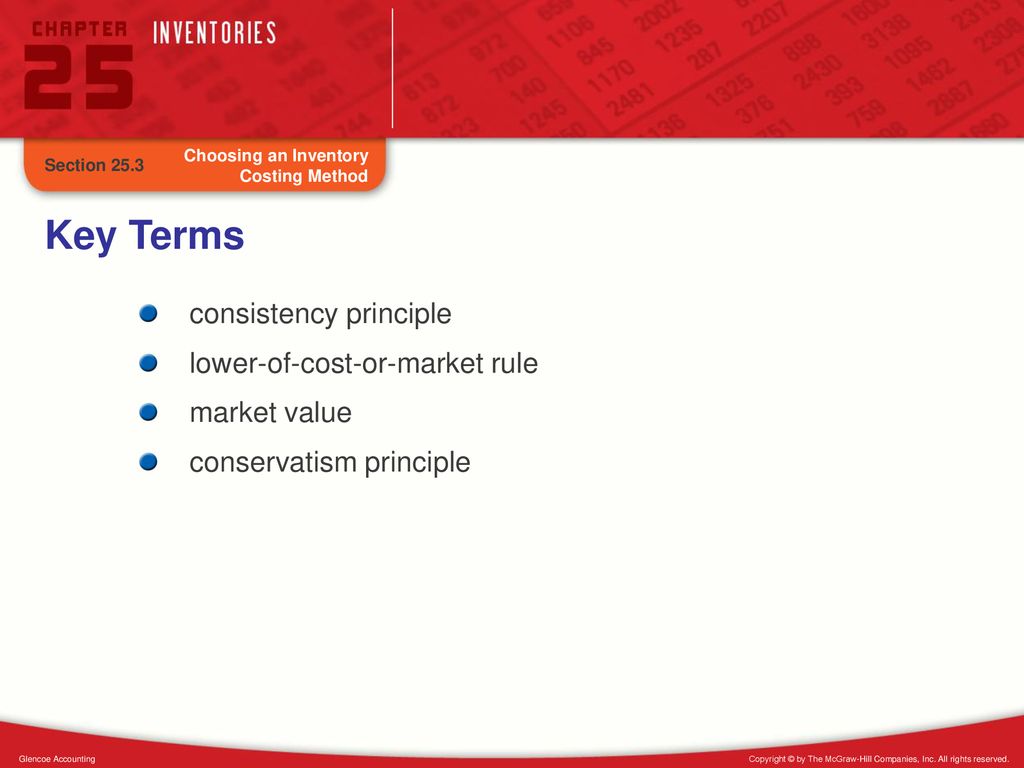
The Principle of Sincerity extends beyond mere compliance with accounting standards; it embodies an ethical stance. Accountants must deal with complex situations where they might face pressure to skew data in a certain direction. Upholding sincerity means resisting these pressures and committing to truthfulness in financial reporting. Consistency does allow a company to make a change to a more preferred accounting method.
What is the approximate value of your cash savings and other investments?
For the past 52 years, Harold Averkamp (CPA, MBA) hasworked as an accounting supervisor, manager, consultant, university instructor, and innovator in teaching accounting online. The Financial Accounting Standards Board refers to consistency as one of the characteristics or qualities that makes accounting information useful. For the past 52 years, Harold Averkamp (CPA, MBA) has worked as an accounting supervisor, manager, consultant, university instructor, and innovator in teaching accounting online. The correctness of decision-making highly depends on the accuracy of financial information. Someone on our team will connect you with a financial professional in our network holding the correct designation and expertise. Our mission is to empower readers with the most factual and reliable financial information possible to help them make informed decisions for their individual needs.
What does Consistency Principles of Accounting mean?
It’s important to have a basic understanding of these main accounting principles as you learn accounting. This isn’t just memorizing some accounting information for a test and then forgetting it two days later. After you know the basic accounting principles, most accounting topics will make more sense. You will be able to reference these principles and reason your way through revenue, expense, and any other combination of problems later on in the study course. Consistency is a straightforward principle and is intended to enhance financial reporting by making it easier for users to make comparisons.
Principle of Permanence of Methods
Thus, if Andrea has incurred the responsibility to pay for the goods, she has clearly increased a liability. While an awareness of what is meant by ‘a different basis’ might be expected (for example, break up basis), candidates would not be expected to apply that basis to calculate values in the FA2 exam. Andy Smith is a Certified Financial Planner (CFP®), licensed realtor and educator with over 35 years of diverse financial management experience. He is an expert on personal finance, corporate finance and real estate and has assisted thousands of clients in meeting their financial goals over his career.
Can you explain the Principle of Continuity and its impact on asset valuation?
This principle prevents manipulation in accounts and makes financial statements comparable across historical periods. For example, there are many viable methods of calculating depreciation on fixed assets. A business can choose any of them to compute depreciation for any assets without contravening any accounting principles or concepts.

It is essential in accounting and finance, dictating how financial information is recorded and reported. This principle ensures that financial data is presented in a systematic, timely, and regular way. The Principle of Continuity, or the Going Concern Concept, is a foundational notion within Generally Accepted Accounting Principles (GAAP). It posits that a business is expected to sustain its operations into the foreseeable future without liquidation or substantial downsizing. The principle is pivotal because it underpins how financial statements are prepared and assets and liabilities are valued.
All of the change requires full disclosure in the financial statements and how the change is affected. Industry Practices Constraint – some industries have unique aspects about their business operation that don’t conform to traditional accounting standards. Thus, companies in these industries are allowed to depart from GAAP for specific business events or transactions. In simple terms whats the difference between a plan a budget and a forecast this means that, for FA2, assets and liabilities will continue to be recorded at the value at which they were initially recorded and that value will be based on the value at the date of the transaction. There is no definition of double entry in the Conceptual Framework – although it is probably fair to say that this is the most fundamental underpinning principle in accounting.
Accounting.com is committed to delivering content that is objective and actionable. To that end, we have built a network of industry professionals across higher education to review our content and ensure we are providing the most helpful information to our readers. Here is a list of the four basic accounting concepts and constraints that make up the GAAP framework in the US.
- The use of the same methods, for the same items, either from period to period within a reporting entity or in a single period across entities.
- In transactions between businesses, it is common for payment not to be made on the same date that an order is made or that goods are transferred.
- 11 Financial may only transact business in those states in which it is registered, or qualifies for an exemption or exclusion from registration requirements.
- It’s not merely a guideline but a bedrock ethical principle that underpins the trust and reliability of financial statements.
- Moreover, the consistency principle helps entities to identify errors and omissions in financial statements, enabling them to correct any inaccuracies before the financial statements are released to users.
Entities must ensure that they apply accounting standards consistently and in a manner that accurately reflects the economic substance of transactions and events. As long as the financial statements consistently use accounting policies and principles, the financial statements will be more accurate and reliable. Sometimes, an accountant has to deal with issues that can be handled by a variety of principles (e.g., depreciation on fixed assets, valuation of stock, etc).
Conversely, if there is uncertainty about recording a gain, you should not record the gain. The International Accounting Standards Board (IASB) issues International Financial Reporting Standards (IFRS). These standards are used in approximately 168 jurisdictions, including those in the European Union (EU).
